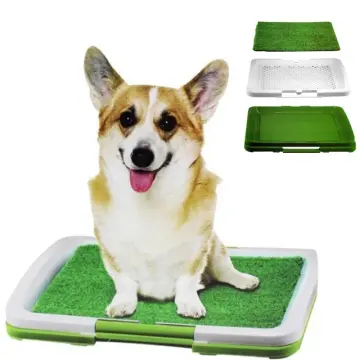
Mastering Puppy Potty Training at Home: Effective Techniques for Pet Owners in the Philippines
Introduction:
Puppy potty training is a crucial aspect of pet ownership, ensuring a clean and harmonious living environment for both puppies and their owners. In the Philippines, where cultural and environmental factors may influence training methods, it’s essential to adopt effective techniques tailored to local conditions. This article aims to provide comprehensive guidance on mastering puppy potty training at home, offering practical tips and strategies for pet owners in the Philippines.
Understanding the Importance of Puppy Potty Training:
Potty training lays the foundation for a well-behaved and hygienic pet. Early and consistent training not only prevents accidents but also fosters good habits that last a lifetime. By teaching puppies where and when to eliminate waste, owners can create a stress-free environment and strengthen the bond with their furry companions.
Establishing a Potty Training Routine in a Philippine Setting:
In the Philippines, incorporating potty training into daily routines can be challenging due to diverse lifestyles and environmental factors. However, consistency is key. By scheduling regular bathroom breaks and adapting routines to suit local conditions, such as climate and household schedules, pet owners can effectively instill good bathroom habits in their puppies.
Creating a Suitable Potty Training Area at Home:
Selecting an appropriate potty training area within the home is essential for success. Whether indoors or outdoors, the designated spot should be easily accessible, hygienic, and comfortable for the puppy. Providing suitable materials, such as pee pads or designated outdoor areas, encourages puppies to recognize and use the designated potty area.
Positive Reinforcement Techniques for Encouraging Desired Behavior:
Positive reinforcement is a powerful tool in puppy potty training. By rewarding desired behaviors, such as using the designated potty area, puppies learn quickly and eagerly repeat the behavior. Offering treats, praise, or playtime as rewards reinforces the association between the desired action and positive outcomes.
Dealing with Accidents: Cleaning and Odor Control Tips:
Accidents are inevitable during the potty training process, but how owners handle them can impact training success. Prompt and thorough cleaning is essential to prevent repeat incidents. Utilizing pet-safe cleaning products and odor neutralizers helps eliminate traces of accidents and discourages puppies from re-soiling the same area.
Addressing Challenges and Common Mistakes in Puppy Potty Training:
Potty training may present challenges for pet owners, such as accidents, regression, or inconsistency. Recognizing common mistakes, such as punishment or inconsistency, allows owners to adjust their approach and maintain progress. Patience, consistency, and positive reinforcement are key to overcoming challenges and achieving success.
Incorporating Cultural and Environmental Factors in Potty Training Strategies:
Cultural and environmental factors unique to the Philippines can influence potty training strategies. Pet owners may need to adapt methods to accommodate local norms or environmental conditions. Flexibility and creativity in training approaches ensure that strategies align with the needs and lifestyle of both puppies and owners.
Outdoor Potty Training Options and Considerations in the Philippines:
In urban and rural areas of the Philippines, outdoor potty training presents unique opportunities and challenges. Urban pet owners may utilize designated outdoor areas or walks for potty breaks, while rural owners have more outdoor space but must consider safety and cleanliness factors. Understanding local options and considerations allows pet owners to make informed decisions.
Using Crate Training as an Aid in Potty Training:
Crate training can be a valuable tool in potty training, providing puppies with a safe and secure space while reinforcing good bathroom habits. Introducing puppies to crates gradually and using them consistently during training helps prevent accidents and encourages puppies to hold their bladder until appropriate potty breaks.
Patience and Persistence: Keys to Successful Puppy Potty Training in the Philippines:
Above all, patience and persistence are essential for successful puppy potty training. Training takes time and effort, but consistent practice and positive reinforcement yield results. Pet owners in the Philippines are encouraged to remain patient, stay consistent with training methods, and celebrate each milestone achieved in the potty training journey.
Conclusion:
Mastering puppy potty training at home in the Philippines requires dedication, adaptability, and a positive mindset. By understanding the importance of training, establishing routines, utilizing positive reinforcement techniques, and addressing challenges with patience and persistence, pet owners can create a clean and harmonious environment for their furry companions. With the right approach and commitment, successful potty training is achievable, fostering a strong bond between puppies and their owners.
No Comments Yet